Bb8.6
 |
 |
 |
 |
 |
|
Bb8-1 (285) |
Bb8-2 |
Bb8-3 |
Bb8-4 |
Bb8-5 |
|
Kua hua ia |
ki to inoino - e to huki e |
hakaturou ki ruga
nei |
e tagata - mau maro |
mai tae tuu mai ki te pa - maro |
|
Hua. 1. Testicle. 2.
Figuratively: son, hua tahi, only son; fruits
of the earth; to grow well (of fruits). 3. To cause
a fight, a quarrel. Hua-ai, generation, as
lineage of direct descendents;
contemporaries. Huahua, coccyx of bird, 'parson's nose':
huahua moa, huahua uha. Huataru, a
creeper (Chenopodium ambiguum).
Vanaga. 1. The same; ki hua, again, to
continue, to strain, to struggle, to move, to
repeat, over and above. Mq.: hua, the same,
to return, to recommence. 2. To bloom, to sprout;
flower, fruit (huaa); huaa tae oko,
huaa vahio, young fruit; hua atahi, only
son; huahaga, fruit; mei te huahaga o
tokoe kopu, the fruit of thy body; tikea
huahaga, deceptive appearance. P Pau.: ua,
to be born; huahaga, lineage. Mgv.: hua,
to produce (said of trees, grain, etc.), blooming
time of flowers, abundance of fruit. Mq.: hua,
to produce, to bear fruit. Ta.: ua, to
sprout. Huahua. 1. Tailless fowl. 2. Vein,
tendon, line. 3. Mgv.: huahua, pimples
covering the face. Ta.: huahua, id. Mq.:
hua, tubercules. Sa.: fuafua, abscess on
hand or feet. Ma.: huahua, small pimples.
Pau.: Hua-gakau, rupture. Ta.: áau,
entrails. Sa.: ga'au, id. Ma.: ngakau,
id. Churchill. 1. Fruit. 2. Egg. 3. Tā
hua = 'genealogical writing' or 'same writing'.
Fischer.
Ruga. Upper part, higher part; when used
as a locative adverb, it is preceded by a
preposition: i ruga, above, on; ki ruga,
upwards, mai ruga, from above. When used
with a noun the same preposition is repeated:
he-ea te vî'e Vakai, he-iri ki ruga ki te Ahu ruga,
the woman Vakai went, she climbed Ahu Runga.
Ruga nui, high, elevated, lofty: kona ruga
nui, high place, elevated position, high office;
mana'u ruga nui, elevated thoughts. Vanaga.
High up; a ruga, above; ki ruga, on,
above, upon; ma ruga, above; o ruga,
upper; kahu o ruga, royal (sail); ruga iho,
celestial. Hakaruga, to accumulate, to draw
up. P Pau., Mgv.: ruga, above. Mq.: úna,
úka, id. Ta.: nua, nia, id.
Churchill.
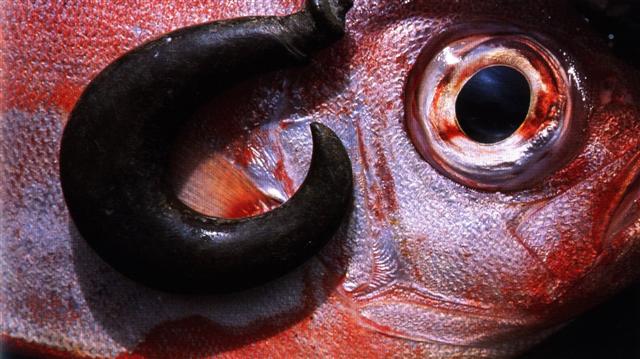
... The first half beginning with
Alef - an ox, and ending with Lamed - a whip. The
second list begins with Mem - water, and continues with
Nun - fish, Samek - fish bones, Ayin - a
water spring, Peh - the mouth of a well, Tsadi -
to fish, Kof, Resh and Shin are the hook
hole, hook head and hook teeth, known to exist from prehistoric
times, and the Tav is the mark used to count the fish
caught ...
 |
|
May 10 (146 - 16) |
11 |
12 (148 - 16) |
13 (133) |
14 (150 - 16) |
|
ALGENIB PERSEI = α Persei (50.0), ο Tauri (50.2), ξ Tauri (50.8)
GIENAH (γ Corvi) |
σ Persei (51.6) |
No star listed (52) |
ψ
Persei (53.1)
ACRUX (α
CRUCIS) |
δ
Persei (54.7) |
|
Nov 8 |
9 |
10 (314 → π) |
11 |
12 |
|
ο
Cor. Borealis (232.0),
δ
Lupi (232.1),
φ¹,
ν²
Lupi (232.2),
ν¹
Lupi (232.3),
ε
Lupi (232.4),
φ²
Lupi (232.5),
PHERKAD (The Dim One of the Two Calves) =
γ
Ursae Min.
(232.6),
ε
Librae (232.7),
η
Cor. Borealis (232.8),
υ
Lupi (232.9)
*191.0 = *232.4 - 41.4 |
ALKALUROPS (The Herdsman's Lance) =
μ
Bootis
(233.1),
ED ASICH (Male Hyena) =
ι
Draconis
(233.2) |
NUSAKAN (Pauper's Bowl) = β Cor. Bor.
(234.0), κ¹ Apodis (234.3), ν Bootis (234.7), ζ
Librae (234.9 |
θ Cor. Borealis (235.3), γ Lupi (235.6),
GEMMA =
α Cor. Bor.,
ZUBEN ELAKRAB = γ Librae, QIN = δ Serpentis, ε Tr.
Austr. (235.7), μ Cor. Borealis (235.8), υ Librae (235.9)
SIRRAH (α Andromedae) |
φ Bootis (236.2), ω Lupi, τ Librae (236.3), ψ¹ Lupi
(236.7), ζ Cor. Borealis (236.9) |
|
... In other words, the ancient Druidic religion
based on the oak-cult will be swept away by
Christianity and the door - the god Llyr - will
languish forgotten in the Castle of Arianrhod, the
Corona Borealis. This helps us to understand
the relationship at Rome of Janus and the White
Goddess Cardea who is ... the Goddess of Hinges who
came to Rome from Alba Longa. She was the hinge on
which the year swung - the ancient Latin, not the
Etruscan year - and her importance as such is
recorded in the Latin adjective cardinalis -
as we say in English 'of cardinal importance - which
was also applied to the four main winds; for winds
were considered as under the sole direction of the
Great Goddess until Classical times ...
 |
 |
 |
 |
 |
 |
 |
|
Bb8-6 (290) |
Bb8-7 |
Bb8-8 |
Bb8-9 (285 + 8) |
Bb8-10 |
Bb8-11 (295) |
|
o te
ariki |
kua vere ko te
kava |
kua haati ia ko te kava |
e mauga - rere ragi - maitai
hura hia |
kua huki - ko te henua |
ku hanau ko te ariki |
|
Hanau. 1. Race, ethnic group.
Hanau eepe, the thick-set race; hanau
momoko, the slender race (these terms were
mistranslated as 'long-ears' and 'short-ears'). 2.
To be born. Hanau tama, pregnant woman;
vî'e hanau poki, midwive (also: vî'e hakaa'u).
Vanaga. To be born; vie hanau, midwife. P
Pau.: fanauga, child, descendant, progeny.
Mgv.: hanau, to be born, to be brought into
the world. Mq.: fanau, hanau, to be
born, to lie in, to bring into the world. Ta.:
fanau, to be born, to lie in. Churchill. |
|
May 15 |
16 (136) |
17 |
18 |
19 |
20 (140) |
|
Al Thurayya-27 (Many Little
Ones) /
Krittikā-3 (Nurses of
Kārttikeya) /
TAU-ONO (Six Stones)
ATIKS =
ο
Persei, RANA (Frog) =
δ
Eridani
(55.1),
CELAENO (16 Tauri), ELECTRA (17), TAYGETA (19),
ν
Persei (55.3), MAIA (20), ASTEROPE (21), MEROPE (23)
(55.6) |
Hairy Head-18 (Cockerel)
/
Temennu-3 (Foundation Stone)
ALCYONE
(56.1),
PLEIONE (28 Tauri), ATLAS (27 Tauri)
(56.3) |
MENKHIB (Next to the Pleiades =
ζ
Persei
(57.6)
PORRIMA (γ Virginis) |
ZAURAK (Boat) = γ Eridani
(58.9) |
λ Tauri (59.3), ν Tauri (59.9) |
4h
(60.9)
JĪSHUĬ = λ Persei (60.7)
COR CAROLI (α Canum Ven.) |
|
Nov 13 |
14 (318) |
15 |
16 |
17 |
18
(322) |
|
κ
Librae (237.2),
ι
Serpentis (237.4),
ψ²
Lupi,
ρ
Oct.
(237.5), γ Cor. Borealis, η Librae (237.7), COR
SERPENTIS = α Serpentis
(237.9)
*196.0 = *237.4 - *41.4 |
π
Cor. Borealis,
UNUK ELHAIA (Necks of the Serpents) =
λ
Serpentis
(238.1),
CHOW =
β
Serpentis
(238.6) |
κ
Serpentis (239.3),
δ
Cor. Borealis,
TIĀNRŪ =
μ
Serpentis
(239.5),
χ
Lupi, (239.6),
ω
Serpentis (239.7),
BA (= Pa) =
ε
Serpentis,
χ
Herculis (239.8).
κ
Cor.
Borealis, ρ Serpentis (239.9) |
λ
Librae (240.0),
β
Tr. Austr. (240.3),
κ
Tr. Austr. (240.4),
ρ
Scorpii (240.8)
*199.0 = *240.4 - *41.4 |
Iklīl al Jabhah-15 (Crown of
the Forehead) /
Anuradha-17 (Following
Rādhā) /
Room-4 (Hare)
ξ
Lupi,
λ Cor. Bor.(241.1),
ZHENG =
γ
Serpentis,
θ
Librae (241.2),
VRISCHIKA =
π
Scorpii
(241.3),
ε
Cor.
Borealis (241.5),
DSCHUBBA
(Front of Forehead) = δ Scorpii
(241.7), η Lupi (241.9) |
υ
Herculis (242.3),
ρ
Cor. Borealis (242.4),
ι
Cor. Borealis (242.5),
θ
Draconis (242.6),
ξ
Scorpii (242.7)
SCHEDIR
(Breast) α Cassiopeiae
*201.0 = *242.4 - *41.4 |
According to the Hawaiians we should count 33 days from
November 18 (322) to the December solstice (322 + 33 = 355).
But this distance was subdivided into 10 + 23 due to Lono.
November 18 (322) + 10 = 332 (November 28):
 |
 |
 |
 |
 |
 |
|
Bb8-12 (296) |
Bb8-13 |
Bb8-14 |
Bb8-15 |
Bb8-16 |
Bb8-17 |
|
e tagata rere - ki to ragi |
e tagata hura ia - ki te
henua |
kua hura koia - ki te ika |
e tagata hura ia - ki te
henua |
koia i huki - ki te tuiga o
te ika - o te haga ki te kai |
kua haga te kai i te maro |
|
Hura. 1. To fish
with a small funnel-shaped net tied to the end
of a pole. This fishing is done from the shore;
fishing with the same net, but swimming, is
called tukutuku. 2. To be active,
to
get moving when working: ka hura, ka aga! come on, get moving! to
work! 3. Tagata gutu hura, a
flatterer, a flirt, a
funny person, a witty person. Hurahura, to dance, to
swing. Vanaga. 1. Sling. In his brilliant study of the distribution of
the sling in the Pacific tracts, Captain
Friederici makes this note (Beiträge zur Völker-
und Sprachenkunde von Deutsch-Neuguinea, page
115b): 'Such, though somewhat modified, is the
case in Rapanui, Easter Island. The
testimony of all the reporters who have had
dealings with these people is unanimous that
stones of two to three pounds weight, frequently
sharp chunks of obsidian, were thrown by the
hand; no one mentions the use of slings. Yet
Roussel includes this weapon in his vocabulary
and calls it hura. In my opinion this
word can be derived only from the Mangareva verb
kohura, to throw a stone or a lance. So
far as we know Rapanui has received its
population in part by way of Mangareva.' To this
note should be added the citation of kirikiri
ueue as exhibiting this particular use of
ueue in which the general sense is the
transitive shake. 2. Fife, whistle, drum,
trumpet, to play; hurahura, whistle. P
Mq.: hurahura, dance, divertissement, to
skip. Ta.: hura, to leap for joy. Pau.:
hura-viru, well disposed. Churchill. H.
Hula, a swelling, a protuberance under
the arm or on the thigh. Churchill 2. |
|
Nov 19 |
20 (324) |
21 |
22 |
23 |
24 |
|
16h (243.5)
ACRAB (Scorpion) = β Scorpii,
JABHAT AL ACRAB (Forehead of the Scorpion) = ω
Scorpii
(243.3), θ Lupi,
RUTILICUS = β Herculis
(243.5),
MARFIK (Elbow) = κ Herculis
(243.7), φ Herculis (243.8) |
ψ
Scorpii (244.6),
LESATH (Sting) =
ν
Scorpii
(244.8) |
χ
Scorpii (245.1),
YED PRIOR (Hand in Front) =
δ
Ophiuchi,
δ
Tr.
Austr. (245.5) |
YED POSTERIOR (Hand Behind) =
ε
Ophiuchi,
RUKBALGETHI SHEMALI (Northern Knee of the Giant)
=
τ
Herculis
(246.6).
δ
Apodis (246.7),
ο
Scorpii (246.8) |
Heart-5 (Fox)
σ
Scorpii
(247.0),
HEJIAN =
γ
Herculis
(247.2),
ψ
Ophiuchi (247.7) |
ρ
Ophiuchi (248.1),
KAJAM (Club) =
ω
Herculis
(248.3),
χ
Ophiuchi (248.5),
SHE LOW (Market Tower) =
υ
Ophiuchi,
Tr.
Austr. (248.7), ζ Tr. Austr. (248.8) |
|
RIGHT
ASCENSION DAYS AT THE FULL MOON: |
|
υ Persei (61.2) |
BEID (Egg) =
ο¹
Eridani
(62.2),
μ
Persei (62.8)
VINDEMIATRIX ( ε Virginis) |
Al Dabarān-2 (The
Follower)
HYADUM I =
γ
Tauri (63.4)
*22.0 = *63.4 - *41.4 |
HYADUM II = δ¹ Tauri
(64.2) |
Net-19
(Crow)
AIN (Eye) =
ε
Tauri,
θ¹
Tauri,
θ²
Tauri (65.7) |
No star listed (66) |
|
May 21 (141) |
22 |
23 |
24 |
25 (118 + 27) |
26 |
|
'April 24 |
25 |
26 |
27 |
28 (118 = 4 * 29½) |
29 |
|
"April 10
(100) |
11 |
12 |
13 |
14 (104) |
15 |
|
MARCH 18 |
19 (142 - 64 = 78) |
20 |
21 (0h) |
22 (81) |
23 |
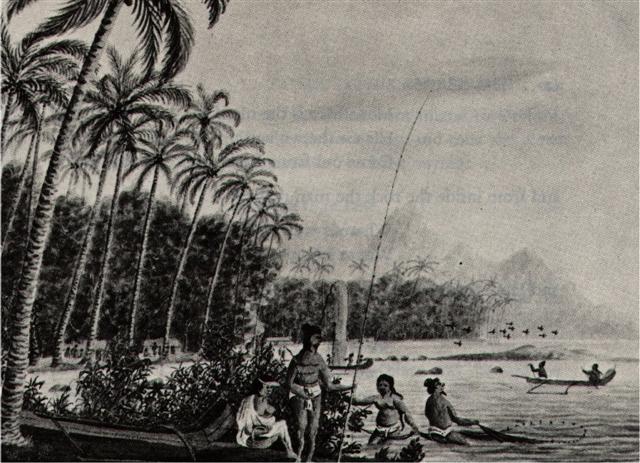 |
 |
 |
 |
 |
|
Bb8-18 (296 + 6) |
Bb8-19 |
Bb8-20 |
Bb8-21 (305) |
|
ku hou ua |
ma te hoko - kua pu te ariki |
i mua kia ia - mai tae puhi i
te ahi |
kua oho te rima ki te henua |
|
Hou.1. To perforate, to
drill. P Pau.: fakahou, to furrow, to
groove, to plow. Mgv.: hou, ouou,
a drill, a wimble, a borer, a gimlet, to pierce
with a drill. Mq.: hou, an auger, a
drill, a wimble, corkscrew, to pierce with a
drill. Ta.: hou, auger, to drill. 2. New,
fresh, modern, recent, young, youth; rae ki
te mea hou, to innovate; hou anei,
modern. Hakahou, to reiterate,
reparation, to restore, to recapitulate; haga
hakahou, to make over, to renew, recovery;
avai hakahou, a loan, to borrow; rere
hakahou mai, to rebound; hakahou iho,
to recommence. P Pau.: hou, young, new.
Mgv.: hou, new; akahou, to renew.
Mq.: hou, new, recent, fresh, young. Ta.:
hou, new, recent, before. Churchill.
Rima.
1. Hand, also, but improperly,
fingers, forearm; te ko mu'a o te rima,
palm of the hand; te ko tu'a o te rima,
back of the hand; rima hakaturu,
generous, liberal, munificent; tagata rima
pu'a, helper; rima hakakau, generous
hands, open-handed person; rima matu'a
neanea, thumb. 2. Fifth; e-rima, ka-rima,
five. Vanaga. 1. Five. P Mgv., Ta.: rima,
id. Mq.: ima, id. 2. Arm, hand; rima
atakai, obliging, kind, generous, a gift,
rima tuku, elbow, rima omo,
infidelity, faithless, unfaithful, rima o te
kahu, sleeve, kakari rima, wrist. P
Pau.: rima, hand, arm. Mgv.: rima,
hand, arm, paw, finger. Mq.: ima, hand,
arm. Ta.: rima, arm, hand, finger.
Rimahakaviriviri, fist, to clench the fist,
a blow of the fist. Rimahati, one-armed.
Rima ko manaroa, little finger T.
Rimamatua neanea, thumb. Rimaroaroa
tahaga, middle finger T. Rimatitiri,
to walk with the hands behind the back.
Rimaruru, to clasp hands. Rimatuhi henna
(?) index finger T. Rimatuhi a hana,
finger ring T (? ring finger). 3. To lead into
error; rimaetua, supernatural, Mq.:
imaima, that which returns after a man's
death, Ta.: rimaatua, plague, dissension,
mortal illness. Churchill.
|
 |
*84
|
 |
|
Bb6-17 (220) |
Bb8-20 (304) |
|
11h (*167) |
ζ Ophiuchi (*251) |
|
|
Nov 25 |
26 |
27 |
28 (332 = 305 + 27) |
|
Al Kalb-16 (The Heart)
/
Jyeshtha-18 (Eldest)
/
ANA-MUA-1 (Entrance
pillar)
ANTARES = α Scorpii
(249.1),
MARFIK (Elbow) = λ Ophiuchi,
φ Ophiuchi (249.5), ω Ophiuchi (249.8) |
γ Apodis (250.1), σ Herculis (250.3), θ Tr.
Austr. (250.6),
τ Scorpii
(250.7) |
HAN = ζ Ophiuchi
(251.0) |
ζ
Herculis,
η
Tr. Austr.
(252.1), η Herculis, β Apodis (252.5) |
|
... The correspondence between the winter
solstice and the kali'i rite of the
Makahiki is arrived at as follows: ideally,
the second ceremony of 'breaking the coconut',
when the priests assemble at the temple to spot
the rising of the Pleiades, coincides with the
full moon (Hua tapu) of the twelfth lunar
month (Welehu). In the latter eighteenth
century, the Pleiades appear at sunset on 18
November. Ten days later (28 November), the
Lono effigy sets off on its circuit, which
lasts twenty-three days, thus bringing the god
back for the climactic battle with the king on
21 December, the solstice (= Hawaiian 16
Makali'i). The correspondence is 'ideal' and
only rarely achieved, since it depends on the
coincidence of the full moon and the crepuscular
rising of the Pleiades ... |
|
RIGHT
ASCENSION DAYS AT THE FULL MOON: |
|
No star listed (67) |
Rohini-4 (The Red
One) /
Pidnu-sha-Shame-4
(Furrow of Heaven)
/
ANA-MURI-2 (Rear pillar - at the foot of which
was the place for tattooing)
ALDEBARAN = α Tauri
(68.2),
THEEMIN = υ² Eridani
(68.5) |
No star listed (69) |
No star listed (70) |
|
May 27 |
28 (148) |
29 |
30 |
|
'April 30 |
'May 1
(Beltane) |
2 |
3 (123 → 366
/ 3) |
|
"April 16 |
17 (107) |
18 |
19 |
|
MARCH 24 |
25 (→ Julian equinox) |
26 (85) |
27 |
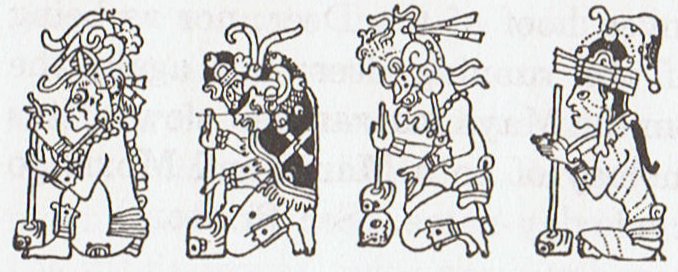 |
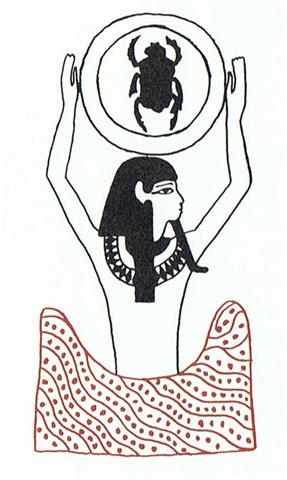
 |
 |
 |
 |
|
Bb8-22 |
Bb8-23 |
Bb8-24 (335 - 27) |
Bb8-25 (309) |
|
koia kua oho ki te henua |
ko korua ra ku pipiri |
kua noho ki te ariki - i
te henua koti hia |
kua amo ko te henua |
|
Piri.
1. To join (vi, vt); to meet someone on
the road; piriga, meeting, gathering.
2. To choke: he-piri te gao. 3.
Ka-piri, ka piri, exclamation: 'So
many!' Ka-piri, kapiri te pipi, so
many shellfish! Also used to welcome
visitors: ka-piri, ka-piri! 4.
Ai-ka-piri ta'a me'e ma'a, expression
used to someone from whom one hopes to
receive some news, like saying 'let's hear
what news you bring'. 5. Kai piri, kai
piri, exclamation expressing: 'such a
thing had never happened to me before'.
Kai piri, kai piri, ia anirá i-piri-mai-ai
te me'e rakerake, such a bad thing had
never happened to me before! Piripiri,
a slug found on the coast, blackish, which
secretes a sticky liquid. Piriu, a
tattoo made on the back of the hand. Vanaga.
1. With, and. 2. A shock, blow. 3. To stick
close to, to apply oneself, starch;
pipiri, to stick, glue, gum; hakapiri,
plaster, to solder; hakapipiri, to
glue, to gum, to coat, to fasten with a
seal; hakapipirihaga, glue. 4. To
frequent, to join, to meet, to interview, to
contribute, to unite, to be associated,
neighboring; piri mai, to come, to
assemble, a company, in a body, two
together, in mass, indistinctly; piri
ohorua, a couple; piri putuputu,
to frequent; piri mai piri atu,
sodomy; piri iho, to be addicted to;
pipiri, to catch; hakapiri, to
join together, aggregate, adjust, apply,
associate, equalize, graft, vise, join,
league, patch, unite. Piria;
tagata piria, traitor. Piriaro (piri
3 - aro), singlet, undershirt.
Pirihaga, to ally, affinity, league.
Piripou (piri 3 - pou),
trousers. Piriukona, tattooing on the
hands. Churchill.
Koti. Kotikoti. To
cut with scissors (since this is an old word
and scissors do not seem to have existed, it
must mean something of the kind). Vanaga.
Kotikoti. To tear; kokoti, to
cut, to chop, to hew, to cleave, to
assassinate, to amputate, to scar, to notch,
to carve, to use a knife, to cut off, to
lop, to gash, to mow, to saw; kokotiga
kore, indivisible; kokotihaga,
cutting, gash furrow. P Pau.: koti,
to chop. Mgv.: kotikoti, to cut, to
cut into bands or slices; kokoti, to
cut, to saw; akakotikoti, a ray, a
streak, a stripe, to make bars. Mq.: koti,
oti, to cut, to divide. Ta.: oóti,
to cut, to carve; otióti, to cut
fine. Churchill. Amo.
To carry on one's shoulders: O Yetú
i-amo-ai te tatauró ki ruga ki-te maúga
Kalvario. Jesus carried his cross up to
the Calvary. Amoga, bundle; to tie in
a bundle: he-amoga i te hukahuka, to
tie a bundle of wood. Vanaga. 1. A yoke, to
carry; amoga, burden, load. 2. To
bend, to beat a path. Churchill. Âmo.
1. To clean, to clean oneself: he-âmo i
te umu, to clean the earth oven;
ka-âmo te hare, ka haka-maitaki, clean
the house, make it good; he-âmo i te
ariga, to clean one's face wetting it
with one's hand. 2. Clear; ku-âmo-á te
ragi, the sky is clear. 3. To slip, to
slide, to glide (see pei-âmo).
Ámoámo, to lick up, to lap up, to dry;
to slap one's body dry (after swimming or
bathing): he-âmoâmo i te vaihai rima.
Vanaga. Amoamo. 1. To feed, to
graze. 2. To spread, to stretch (used of
keete). Churchill. |
|
Nov 29 |
30 |
Dec 1 |
2
(336
→
4 * 84) |
|
RIGHT
ASCENSION DAYS AT THE FULL MOON: |
|
TABIT =
π³
Orionis
(71.7),
π²
Orionis (71.9) |
π4
Orionis (72.1),
ο¹
Orionis (72.4),
π5
Orionis (72.8)
*31.0 = *72.4 - *41.4 |
π¹
Orionis (73.0),
ο²
Orionis (73.4),
HASSALEH =
ι
Aurigae
(73.6),
π6
Orionis (73.9)
*32.0 = *73.4 - *41.4 |
ALMAAZ = ε Aurigae
(74.7),
HAEDUS I = ζ Aurigae
(74.8) |
|
May 31 |
June 1 (152) |
2 |
3 |
|
'May 4 |
5 (125 → 5 * 5 * 5) |
6 |
7 |
|
"April
20 |
21
(111) |
22 |
23 |
|
MARCH 28 |
29 (88) |
30 |
31 |
Metoro seems to have associated the form in Bb8-27
with that of an egg:
...
Long ago in the very beginning of time there dwelt
within a shell an infant god whose name was
Ta'aroa. He was Ta'aroa the unique one,
the ancestor of all gods, the creator of the
universe whose natures were myriad, whose backbone
was the ridgepole of the world, whose ribs were its
supporters. The shell was called Rumia, Upset.
Becoming aware at last of his own
existence and oppressed by a yearning loneliness
Ta'aroa broke open his shell and, looking out,
beheld the black limitless expanse of empty space.
Hopefully, he shouted, but no voice answered him. He
was alone in the vast cosmos. Within the broken
Rumia he grew a new shell to shut out the
primeval void ...
 |
 |
 |
 |
 |
 |
 |
|
Bb8-26 |
Bb8-27 (732) |
Bb8-28 |
Bb8-29 |
Bb8-30 (314) |
Bb8-31 |
Bb8-32 |
|
kua ka ko te Raa |
i vai te taketake |
ku kotia ko te henua |
kua haaati
hia ko te kava |
kava vere ki te henua |
kua haaati
hia ko te kava
- ma te hatu huri |
eko te henua |
|
Take.
The Marquesans are the only people who
own to a distinctive national name, and
retain a tradition of the road they
travelled from their original habitat, until
they arrived at the Marquesan Islands. They
call themselves te Take, 'the
Take nation'. Fornander. Take,
Tuvaluan for the Black Noddy (Anous
Minutes). The specific epithet
taketake is Māori for long established,
ancient, or original. In the Rapa Nui
mythology, the deity Make-make was
the chief god of the birdman cult, the other
three gods associated with it being
Hawa-tuu-take-take (the Chief of the
eggs) his wife Vie Hoa and Vie
Kanatea. Wikipedia. |
|
Dec 3 |
4 |
5 |
6 (355 - 15) |
7 (341) |
8 (364 - 22) |
9 |
|
RIGHT
ASCENSION DAYS AT THE FULL MOON: |
|
HAEDUS II = η Aurigae
(75.9) |
5h (*76.1)
ε
Leporis (76.0),
CURSA (Footstool) = β Eridani (76.4),
λ Eridani (76.7)
*35.0 = *76.4 - *41.4 |
μ Aurigae, μ Leporis (77.6) |
ĸ Leporis (78.0),
RIGEL (Foot) =
β
Orionis
(78.1),
Flaming Star = IC405
(78.2),
CAPELLA = α Aurigae (78.4),
ο
Columbae,
τ
Orionis (78.8)
*37.0 = *78.4 - *41.4
THUBAN (α Draconis) |
λ Aurigae (79.0), λ Leporis (79.6), ρ
Aurigae (79.7)
ARCTURUS (α Bootis) |
Shur-narkabti-sha-iltanu-5 (Star in the Bull
towards the north)
σ
Aurigae (80.4), BELLATRIX (Female Warrior) =
γ
Orionis, SAIF AL JABBAR (Sword of the Giant)
=
η
Orionis
(80.7),
ELNATH (The Butting One) =
β
Tauri =
γ
Aurigae
(80.9) |
ψ
Orionis (81.1),
NIHAL (Thirst-slaking Camels) =
β
Leporis
(81.7) |
|
June 4 (155) |
5 |
6 |
7 |
8 |
9 |
10 |
|
'May 8
(128) |
9 |
10 |
11 |
12 |
13 |
14 |
|
"April
24 (114) |
25 |
26 |
27 |
28 |
29 |
30 |
|
APRIL
1 (91) |
2 |
3 |
4 |
5 |
6 |
7 |
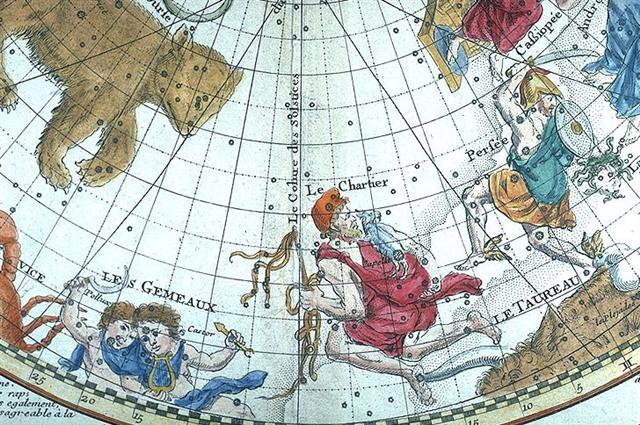
|






















